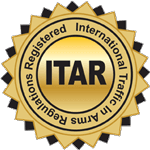Manufacturing process automation involves integrating technology into production systems to make them more efficient. In today’s fast-paced manufacturing environment, the demand for high-quality output has never been greater. As industries continue to evolve, embracing the power of automated machining becomes not just a competitive advantage but a necessity for staying ahead in the global marketplace. Let’s delve into how leveraging the power of automated machining can result in maximum-quality output.
Utilizing Automation to Address Quality Control Challenges in Machining
Precision Engineering
Automated machining enables manufacturers to achieve unparalleled precision in producing components and parts. These systems can execute complex cutting, shaping, and drilling operations with microscopic accuracy, ensuring that each piece meets the required specifications. This level of precision enhances the quality of the end product and reduces waste and rework, ultimately leading to cost savings and increased efficiency.
Consistency and Reproducibility
One of the key advantages of automated machining is its ability to deliver consistent and reproducible results. Unlike manual operations, automated systems can repeatedly replicate the same precise movements and processes, eliminating variations that often arise from human error. This consistency is paramount in achieving the highest quality output, especially in industries where standardized components are crucial for seamless assembly and functionality.
Enhanced Efficiency and Productivity
Automation in machining significantly boosts overall efficiency and productivity. With the capability to run continuously and autonomously, machines can operate around the clock, optimizing production output without compromising quality. The reduced cycle times and minimal downtime associated with automated systems translate to accelerated lead times and faster time-to-market for manufactured goods. As a result, manufacturers can meet stringent deadlines and customer demands while maintaining uncompromising quality standards.
Quality Monitoring
Modern automated machining solutions are equipped with sophisticated quality control monitoring features that allow real-time inspection of production processes. Manufacturers can monitor crucial parameters such as dimensional accuracy, surface finish, and material integrity, enabling proactive identification and resolution of potential defects. This proactive approach to quality assurance ensures that only flawless components make their way into the final products, upholding the brand’s reputation and instilling confidence in end-users.
Adaptability and Customization
Automation in machining does not equate to inflexibility. On the contrary, advanced systems can be programmed to accommodate rapid changeovers and customization requirements, catering to the diverse needs of different product lines and variants. Whether it’s adjusting cutting paths, modifying tooling configurations, or transitioning between various workpieces, automated machining offers agility and adaptability without compromising on component quality.
The Staub Difference in Manufacturing Process Automation
At Staub Precision Machine, process automation is deeply embedded in our daily production operations. As an early adopter of automated machining techniques, Staub utilizes robots and other automation to reduce variability and raise efficiency in all our operations. Our continuous improvement approach elevates our processes, ensuring greater customer consistency and quality output.
Contact our expert team at Staub today to learn more about how our automated solutions and capabilities can support your project needs.



